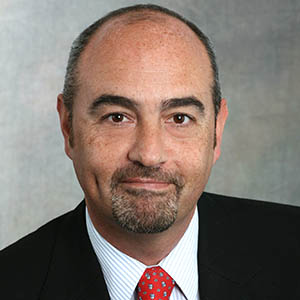A raft of new regulations around the world is changing how treasurers manage cash.

Back To Supplment
No matter where treasurers are situated in the world, they share similar concerns: mainly, gaining greater visibility and control over their cash to deploy it when and where they want or invest it for higher yields. Yet regional and local market variations in the regulatory landscape can impact treasurers’ ability to perform these fundamental tasks.
For example, treasurers in Europe leveraged the single currency to sweep excess cash balances into a single euro account. But their counterparts in Asia and Latin America have, historically, found it more difficult to set up centralized liquidity pools covering all markets in the region as a result of diverse regulatory approaches and capital controls.
One of the biggest changes in recent years has been the gradual opening up of the Chinese market. “China has gone from being a trapped cash market to one that can now be included in global liquidity and netting structures,” says Victor Penna, head of treasury solutions at Standard Chartered Bank.
Frankie Au, head of renminbi products at Standard Chartered, says the relaxation of regulations in China means excess renminbi in domestic cash pools can now be integrated or swept to a company’s offshore global liquidity pool. “It allows companies to bridge their onshore cash pool with their offshore cash pool,” he explains. Once the cross-border sweeping structure is in place, Au says, it can be used as a cross-border revolving intercompany lending conduit.
So far the cross-border sweeping relaxation applies only to companies that are registered in the Shanghai Free-Trade Zone. However, Au says it is likely to be replicated in other free-trade zones in the country. Corporates located outside the SFTZ can leverage the “pan-China, cross-border cash pool liquidity management scheme” to manage their surplus capital. But Au says doing so comes with a number of conditions. Given the limitations, Au advises companies that it may be better to wait for further easing expected in other free-trade zones.
Penna also points to regulatory efforts in Malaysia and Thailand, which are vying to supplant Singapore as a favored location for regional treasury centers. “There has been liberalization around cross-border transactions for treasury centers based in Thailand,” he says. “Malaysia has made various moves to attract more treasury business as it wants large domestic players to set up treasury centers in their home market.”
MANAGING DOLLARS
Like Asia, Latin America has also historically presented numerous challenges for multinational corporations when it comes to managing excess cash and liquidity. But J.P. Cuevas, head of global transaction services for Latin America and the Caribbean at Bank of America Merrill Lynch, says key markets are now trying to manage more carefully the wave of dollars that has flooded into the region over the past few years.
“Governments have created some restrictions to keep a check on balances,” he says. “I’ve just come back from Colombia, and they still have restrictions that prohibit pooling and netting. Peru is the same thing…. Pooling and netting in some countries remains problematic, and I don’t see any change in the short term.”
Jim Volkwein, Deutsche Bank’s head of trade finance and cash management corporates, Americas, says Argentina remains a challenge in terms of moving cash out of the country because of the uncertain political landscape, with elections scheduled for October.
Back To Supplment
SAFEGUARDING CAPITAL

Recent falls in commodities prices have also taken their toll on some economies in Latin America. “As commodity prices have fallen, it has impacted flows,” notes Volkwein. So in pre-export financing, if the value of the commodity drops by half, your financing can be impacted.”
As a result, more companies in the Americas are focusing on supply chain finance. Cuevas of BofA Merrill says Peru and Colombia have maintained levels of foreign direct investment. In Mexico, investment levels are rising as a result of the government permitting foreign companies to compete in the domestic energy sector.
In North America, multinationals’ biggest challenge is a low-interest-rate environment. Excess liquidity from the region is finding its way to Hong Kong and China, where dollar returns are much higher, says Penna of Standard Chartered. “The only downside is that it may be more difficult for treasurers to get funds out of those markets if there is a financial crisis.”
Regulatory changes, such as money market fund reforms in the US and negative interest rates in Europe, mean that capital preservation is no longer a given, says Amit Agarwal, head of liquidity management services for EMEA within Citi’s treasury and trade solutions (TTS) group. He said banks have responded by expanding the scope of investment solutions beyond bank deposits to include products like repos and synthetic swaps.
ONE-STOP SHOPPING
The Middle East and Africa, on the other hand, are only now looking at liquidity structures like pooling and cash concentration, says Standard Chartered’s Penna. But he notes that regulatory ambiguity persists when it comes to rules governing notional pooling.
“Africa is developing liquidity structures,” he explains, “but it is where Asia was 15 years ago. These countries’ markets are not as liquid or deep, so inevitably they need some capital controls around that.” Although markets like Kenya, Uganda and Mauritius, Penna says, are relatively open, most of the larger markets, including Nigeria, are still heavily regulated.
What Africa may lack in terms of sophisticated liquidity management structures it is making up for with digitization of payment channels. Citi partnered with Kenyan telecom provider, Safaricom, to provide a fund transfer solution for corporate and public-sector clients looking to reach remote locations. The system facilitates payments into mobile wallets, and beneficiaries can access funds using mobile phones. Rajesh Mehta, EMEA head of Citi TTS, says Nigeria is also making significant progress in digitizing its payment infrastructure. As part of the country’s Payments System Vision 2020, national authorities are looking to integrate the ACH (Automated Clearing House) network with that of local mobile network operators.
“Regulation is a driver for innovation,” says Ireti Samuel-Ogbu, EMEA head of payments and receivables at Citi TTS, pointing to the example of the Single Euro Payments Area (SEPA) in the eurozone. The initiative requires payment systems to migrate to new credit-transfer and direct-debit instruments in order to make sending a payment within Europe as easy as sending domestic payments.
“SEPA means companies only need to maintain a single bank account for Europe,” Samuel-Ogbu explains.
One regulation that all markets must contend with is Basel III. The Liquidity Coverage Ratio under Basel III promotes the short-term resilience of a bank’s liquidity risk profile by ensuring that it holds enough unencumbered high-quality liquid assets that can be readily converted into cash. As the LCR incentivizes banks to hold more operating cash, Penna of Standard Chartered says, banks are devising interesting products to retain client deposits for longer.
“Five years ago banks played down the value of overnight money,” he explains. “But Basel III has changed the playing field. Banks are demanding a greater share of clients’ cash management business to capture more operating balances, so the wallet share issue has become a critical discussion corporates need to have with their banks.”



